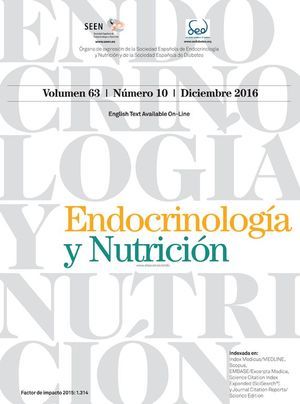La asistencia sanitaria de calidad es aquella que se basa en las prácticas clínicas que tienen el mayor cociente beneficio-riesgo según la evidencia científica disponible y a unos costes razonables. La sobreutilización de procedimientos diagnósticos o terapéuticos de eficacia no probada es común en nuestro medio y genera un incremento del gasto sanitario y, potencialmente, yatrogenia. Iniciativas previas de coste-efectividad han propuesto identificar medidas diagnósticas y terapéuticas que sea mejor «no hacer» en determinados contextos clínicos bajo el prisma de la evidencia científica disponible. En esta línea, la Sociedad Española de Endocrinología y Nutrición (SEEN) ha recogido una serie de recomendaciones de no hacer emanadas de sus diferentes grupos de trabajo y áreas de conocimiento. Estas recomendaciones cubren varias situaciones clínicas comunes clasificadas por las siguientes áreas temáticas: diabetes, obesidad, nutrición, hipófisis, tumores neuroendocrinos, tiroides y terapia hormonal sustitutiva en la mujer postmenopáusica.
Quality healthcare should be grounded on clinical practice with the highest benefit-risk ratio and cost-effectiveness according to the available scientific evidence. The overuse of unproven diagnostic or therapeutic procedures is common in our setting and leads to increased healthcare spending and even iatrogenic harm. Previous cost-effectiveness initiatives have proposed identifying diagnostic and therapeutic measures that are better ‘not done’ in certain clinical contexts under the lens of the available scientific evidence. In this regard, the Spanish Society of Endocrinology and Nutrition (SEEN) has compiled a series of ‘not-to-do’ recommendations from its various working groups. These recommendations cover common clinical situations classified into the following thematic areas: diabetes, nutrition, pituitary gland, neuroendocrine tumors, thyroid, and hormone replacement therapy in postmenopausal women.






